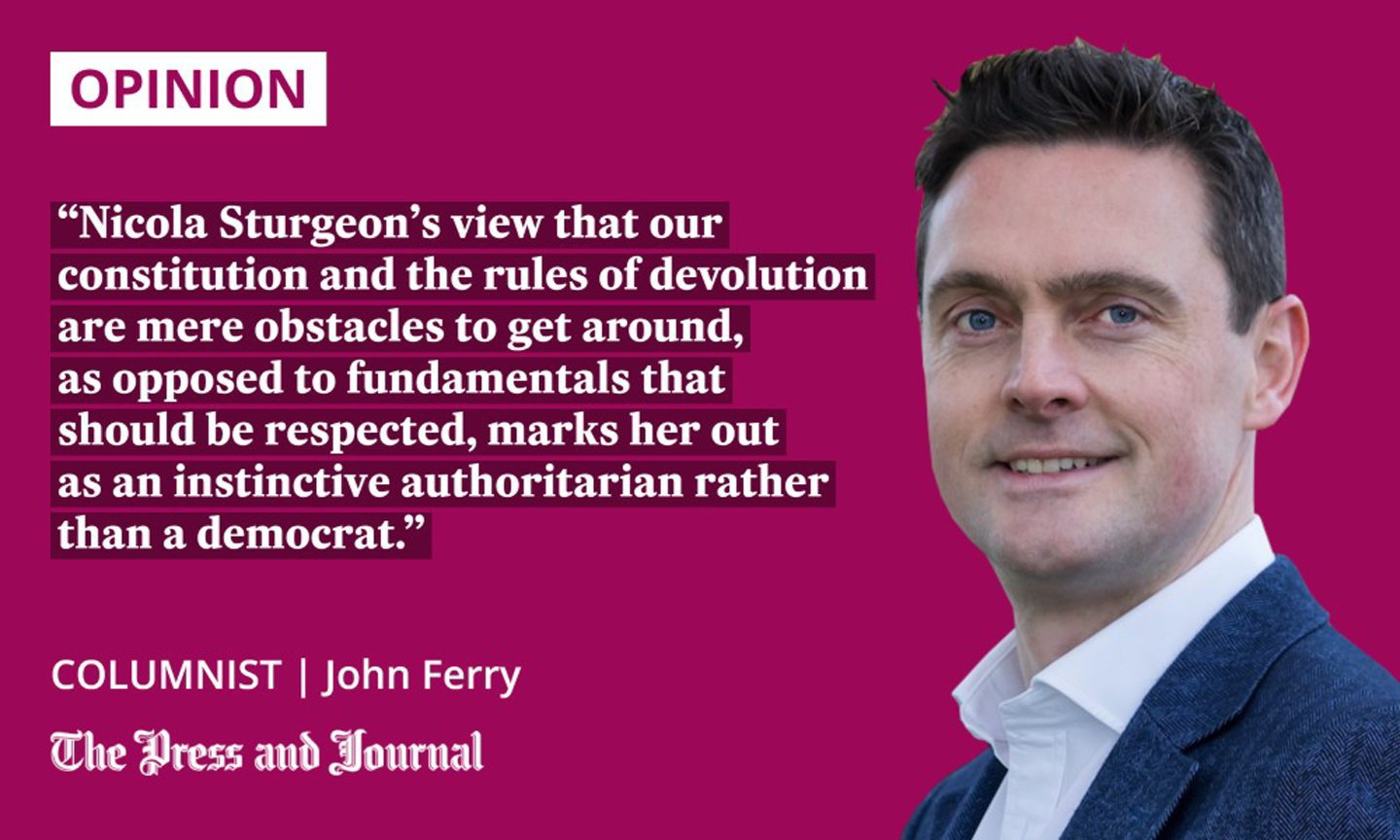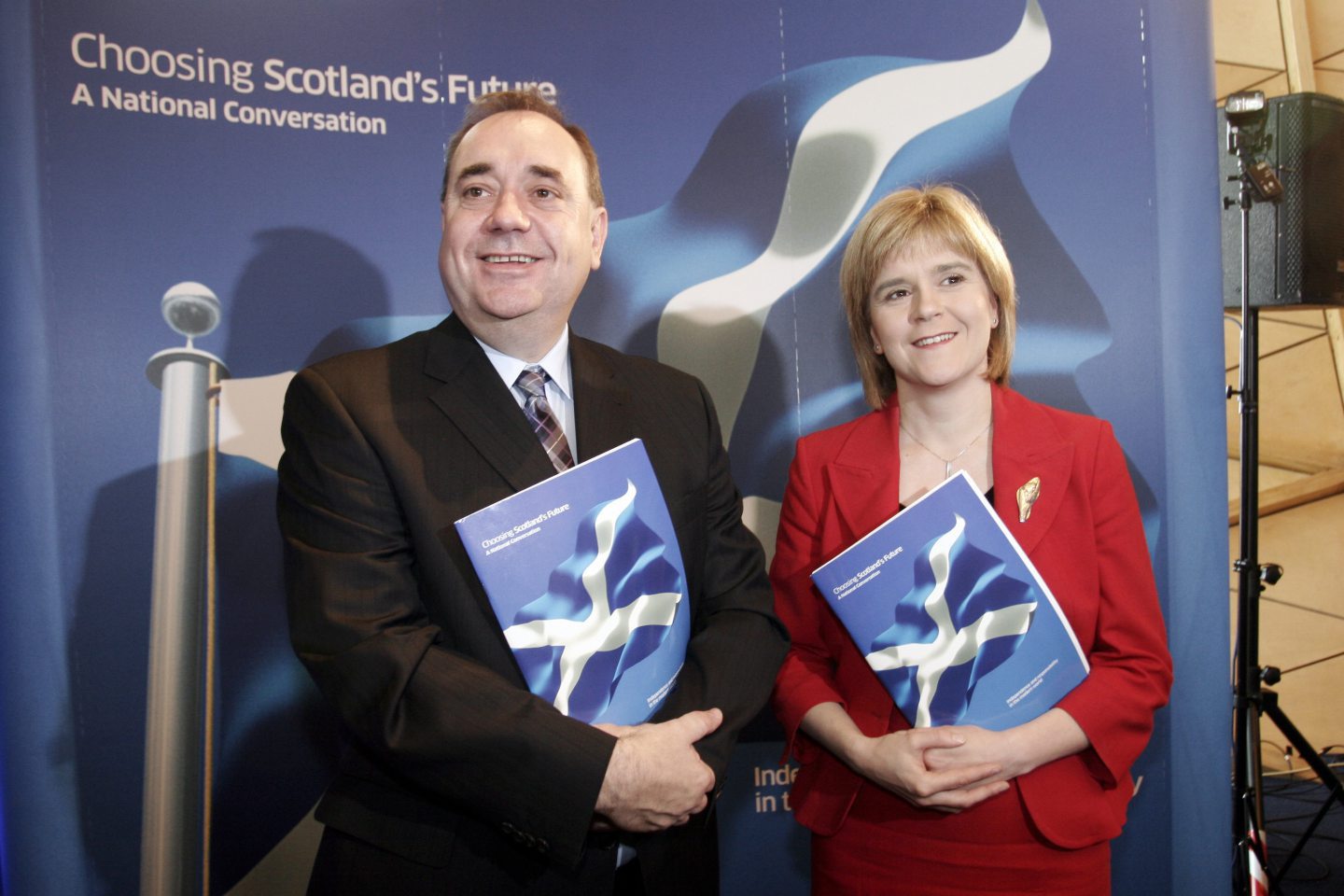Look online at political discourse around the constitution, and the phrase “abolish Holyrood” will soon come up, often used as a hashtag to drum up support for reversing devolution.
This is the extreme end of the spectrum of those who wish to keep Britain together. Shutting down Holyrood to focus power at the UK level is a British nationalist position most Scots disagree with.
At the other extreme, there are those who wish to shut down Westminster, at least from a Scottish perspective, as a centre of political authority. Like the abolish Holyrood crowd, the SNP and the Scottish Greens want to bring an end to devolution, but they want to do so by establishing pure political supremacy at the level of Holyrood. This is a Scottish nationalist position most Scots also disagree with.

To listen to the first minister’s framing of her arguments for Scotland leaving the UK last week, when she presented her government’s latest white paper on the topic, you would think devolution is one of the extreme positions in this debate. It is not.
Devolution is the compromise position that respects Scotland as a nation and Britain as a nation. The extremes are the two positions that would destroy devolution. The fact that one of those extremes is being pushed aggressively by the party of government in Scotland does not make it any less extreme.
It is worth keeping this in mind as we hear calls to “respect democracy” from the SNP, the Scottish Greens and Alex Salmond’s Alba Party.
Devolution matters – or it should
Since the establishment of the Scottish parliament, politicians like Nicola Sturgeon and Alex Salmond have campaigned relentlessly against devolution. Their political careers are characterised by an inability to tolerate expansive, inclusive democracy.
It is a bit rich, having to take lectures on respecting democracy from politicians who, by definition, do not respect the democratic bonds that bind us together. Must we all, like Salmond and Sturgeon, become intolerant of pluralism if we are to be good democrats?
Of course, what the first minister means when she says “respect democracy” is that we must accept her particular, self-serving, nationalist interpretation of democracy. She appears to believe democracies function on the basis that a minority party going into coalition with another minority party to take control of a devolved, sub-state legislature automatically has the power to re-write the constitution of the state.
It should not require a constitutional lawyer to point out to the first minister that that is not, in fact, how democracies work. Constitutions matter. They are the cornerstone of democracy. And, here in the UK, devolution matters – or, at least, it should matter.
‘Will of the people’ argument is Trumpian
Referendums on secession in democracies are almost unheard of. The 2014 referendum was the exception to the rule, not the starting gun for endless repeats until we give the correct answer.
Many democracies explicitly outlaw secession by incorporated nations. In 2017, Germany’s Constitutional Court ruled secession unconstitutional on the back of nationalists in Bavaria agitating for an independence referendum. This is despite Bavaria holding all the attributes of nationhood. Anybody labelling German politicians or judges “democracy deniers” would rightly be viewed as a bit odd.
The popularity of the SNP has led many to view the union as being in crisis. In truth, liberal democracy globally is in crisis
Nicola Sturgeon’s view that our constitution and the rules of devolution are mere obstacles to get around, as opposed to fundamentals that should be respected, marks her out as an instinctive authoritarian rather than a democrat. Her insistence that she and her government represent the “will of the people” and, as such, should be unconstrained by constitutional norms and decades of historical precedent in democracies is more than a little Trumpian.
The popularity of the SNP has led many to view the union as being in crisis. In truth, liberal democracy globally is in crisis, and the current party of government in Scotland is part of the problem.
Populism, polarisation and post-truth
The Venezuelan writer Moisés Naím has written about the “three P” formula that is degrading democracy: populism, polarisation, and post-truth. The SNP deploys all three of these techniques ubiquitously, albeit camouflaged under the language and mannerisms of progressive politics.
There is a reasonable conversation to be had about finding a clearly defined legal route for Scotland to secede from the UK. Ultimately, people can only be governed by consent. Given the outcome of the last Holyrood election, it would be fair for Nicola Sturgeon to propose a UK constitutional convention with that on the agenda.
📺 🏴 Tomorrow I will publish the second in the Building a New Scotland series of papers, refreshing the case for independence. This one focuses on democracy and democratic renewal, and could not be more timely. Watch from 11am on @scotgov channel #indyref2
— Nicola Sturgeon (@NicolaSturgeon) July 13, 2022
Others engaging in such a discussion would be at liberty to put forward their ideas, be it recentralisation around Westminster, or an even looser, more federal-like UK.
That is the democratic way forward from this point. Instead, we have populists brandishing “will of the people” tropes while trying to smash devolution and bulldoze their way through the constitution. They are the anti-democrats.
We must be wise to authoritarians demanding we “respect democracy”.
John Ferry is a regular commentator on Scottish politics and economics, a contributor to think tank These Islands, and finance spokesperson for the Scottish Liberal Democrats






Conversation